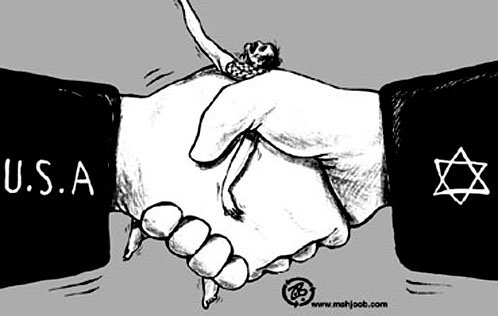Edited by Kyrstie Lane
Obama Diplomacy: The Superpower’s Active Engagement Called into Question
The mobilization of international order is progressing in the Asia-Pacific region and the Middle East. In order to maintain peace and stability in these regions, active engagement from the U.S. as the world’s sole superpower is still crucial. However, United States President Obama’s “Asia pivot,” which seeks to move diplomatic and security policy toward the Asia-Pacific region, is being tripped up by Middle East policy and is not progressing smoothly. Can Mr. Obama, who is currently politically weak domestically, rebuild his diplomatic policies? The challenge awaits him during his upcoming visits through Asia in April.
A Stumble in Syria Policy
The U.S. policy on Syria exposed the straying of Obama's diplomacy. Last summer, in the midst of a Syrian civil war with over 100,000 casualties, Obama declared a U.S. military strike on the Assad regime for its use of chemical weapons. At the same time, Obama asked the U.S. Congress for permission to use military force, which was an extremely unusual step for a president. Moving responsibility for the military strike from himself to Congress is one factor in Obama’s lowered prestige domestically.
There was, however, a successful side to this U.S. pressure: The Assad regime agreed to destroy its stock of chemical weapons before the U.S. Congress had a chance to vote on a resolution for a military strike. The U.S. would not engage militarily and the continued existence of the Assad regime would be tolerated. Both neighboring nations and domestic rebel groups opposing the Assad regime looked at Obama’s inconsistent stances and developed distrust toward him. This is also likely a miscalculation on the part of Obama.
On the Iran nuclear issue, Obama began engaging the president of Iran in direct dialogue and the U.S. began nuclear talks with Iran in cooperation with other countries. However, opposition to these talks within the U.S. Congress is strong and the direction of negotiations remains uncertain.
The majority of U.S. troops currently in Afghanistan will be withdrawn by the end of this year. Withdrawal of U.S. troops from Iraq is already completed and the “war on terror” — which started on 9/11 and has now lasted more than 10 years — is expected to come to an end, at least for the time being.
A trend of hostility toward foreign engagement and intervention due to “war fatigue” has become very apparent within American society. This “inward orientation” of Americans has cast a shadow on Obama's diplomacy.
Partisan Politics an Issue of Concern
The reason Obama is being forced to keep a close eye on the U.S. Congress is that even though his own Democratic Party enjoys a majority in the Senate, the House of Representatives is controlled by Republicans. This situation does not allow him to freely shape policy.
The Republicans continue to ramp up pressure on the administration. Last year, to interfere with the implementation of the Affordable Care Act (Obamacare) – legislation Obama established during his first term as president – the Republicans caused a temporary shutdown of the federal government. During this period, Obama’s approval rating temporarily dipped below 40 percent – his lowest ever.
In November of this year, the U.S. will have midterm elections and there is no doubt the Republicans are fervently preparing for a showdown. If Obama’s ability to handle Congress proves difficult, there is concern that his foreign diplomacy options would be further whittled down.
In the Asia-Pacific, however, China continues to raise tensions in the region by trying to change the status quo through its own might. The sense of uncertainty surrounding North Korea also continues to mount. This newspaper hopes Obama puts all his effort into getting the "Asia pivot" back on course.
Toward a Deterrent Policy with Allied Nations
The challenge the U.S. needs to tackle is clear. That challenge is to create a coalition with regional allies and other friendly nations to deter Chinese expansionism that flies in the face of international common sense, as shown by the unilateral establishment of an Air Defense Identification Zone over the East China Sea.
Obama has already hammered out a plan to increase the overall number of active U.S. Navy vessels in the Asia-Pacific region 50 to 60 percent by 2020. There is word that U.S. troops currently stationed in South Korea will be beefed-up, with an estimated 800 newly deployed army forces.
On the economic front, negotiations in which Japan and the U.S. played a central part are being finalized for a Trans-Pacific Partnership (TPP) deal. This will create a new free trade zone in the Asia-Pacific region. Once TPP becomes a reality, we must have a strong system [of checks and balances] against Chinese hegemonic actions.
However, in a bilateral meeting last year, Chinese President Xi Jinping told Obama that “the vast Pacific Ocean has enough space for the two large countries of China and the United States,” and sought to build a “new model of major country relationship.” We can view these comments as a plot by China to split the Asia-Pacific region in two and to force U.S. recognition of China’s expanded sphere of influence in the western Pacific region. What is really worrisome is that voices within the U.S. government seem to be sympathetic to a “new model of major country relationship” — most certainly because they are considering the United States' economic interdependence with China.
Whether it is Japan, South Korea, Australia or the Philippines, there is almost no allied nation that wants China to take the leadership role within the Asia-Pacific order in lieu of the U.S. This newspaper hopes the United States will act prudently in engaging these challenges.

